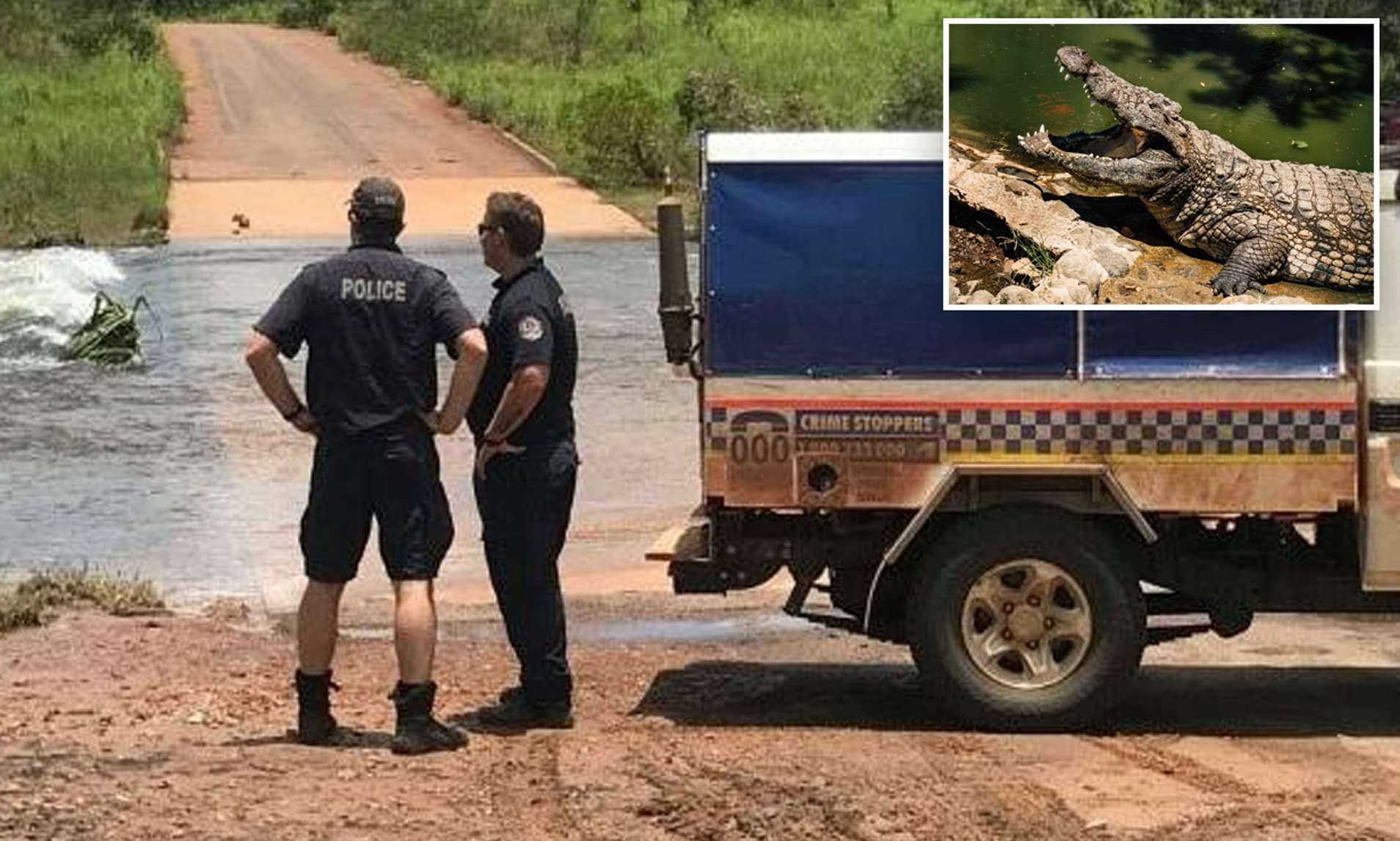
CROCODILE ATTACK NT: FAMILY OF LITTLE GIRL BREAK THEIR SILENCE
- Girl, 12, vanished while swimming in an NT waterhole
- Some have asked why she was swimming in the croc habitat
- READ MORE: T-shirt of 12-year-old found after suspected croc attack
An extended family member of a young girl believed to have been killed by a crocodile in the Northern Territory has spoken out.
The girl was last seen swimming with family members at Mango Creek near the remote Aboriginal community of Nganmarriyanga - also known as Palumpa - 350km south-west of Darwin on Tuesday, before her partial remains were found Thursday.
'It was an extremely difficult, essentially 36 hours... For the family, it is the most devastating outcome possible for them. They are in a state of extreme shock and disbelief,' NT Police Senior Sergeant Erica Gibson said.
Snr Sgt Gibson on Thursday morning told ABC Radio Darwin the girl had been with family when the incident occurred.
'The child disappeared and they notified other family who were able to notify and contact police,' she said.
'It is just simply a really tragic event not only for the family but for all responding frontline police officers who were there assisting them.'
One extended family member who was not present when the incident occurred has since shared a post to social media expressing her sadness.
'My condolences to all my family... in Palumpa words, can't express the loss and pain we feel,' Jade Walker said.
'Such a tragic [event] May the lord bless all of you at this very sad time, God gained another beautiful angel. Thinking of you my big bro and sister-in-law, mum and the rest of the families... wish we were back home with all my mother's side families.'
Some people have since cruelly felt it necessary to point out on social media that the girl should not have been allowed in the water, which is known to be the domain of crocodiles.
'It's the NT crocs are everywhere, swim at own risk,' one person said.
'In saying that she is a child and should have been taught water safety by parents, secondly the parents shouldn't have allowed her to swim in croc waters.'
'Why swim where there is crocs?' added another.
'Did they not see the many signs posted around these areas . You only have to step out of your vehicle and a local will warn you . So very sad , where were the parents, she was only 12?' a third said.
'That's the risk you take when you swim in these areas,' another said.
Efforts are continuing to find and trap the responsible crocodile.
Saltwater crocodiles are territorial and the killer is likely to remain in nearby waterways.
The crocodile population has exploded across the Australia's tropical north since they became a protected species under Australian law in 1970s.
Saltwater crocodiles can live up to 70 years and grow throughout their lives, reaching up to six meters in length, while the proportion of larger crocodiles is also rising.
Crocodiles are considered a risk in most of the Northern Territory's waterways.
Read more 2024-07-05T04:35:22Z dg43tfdfdgfd